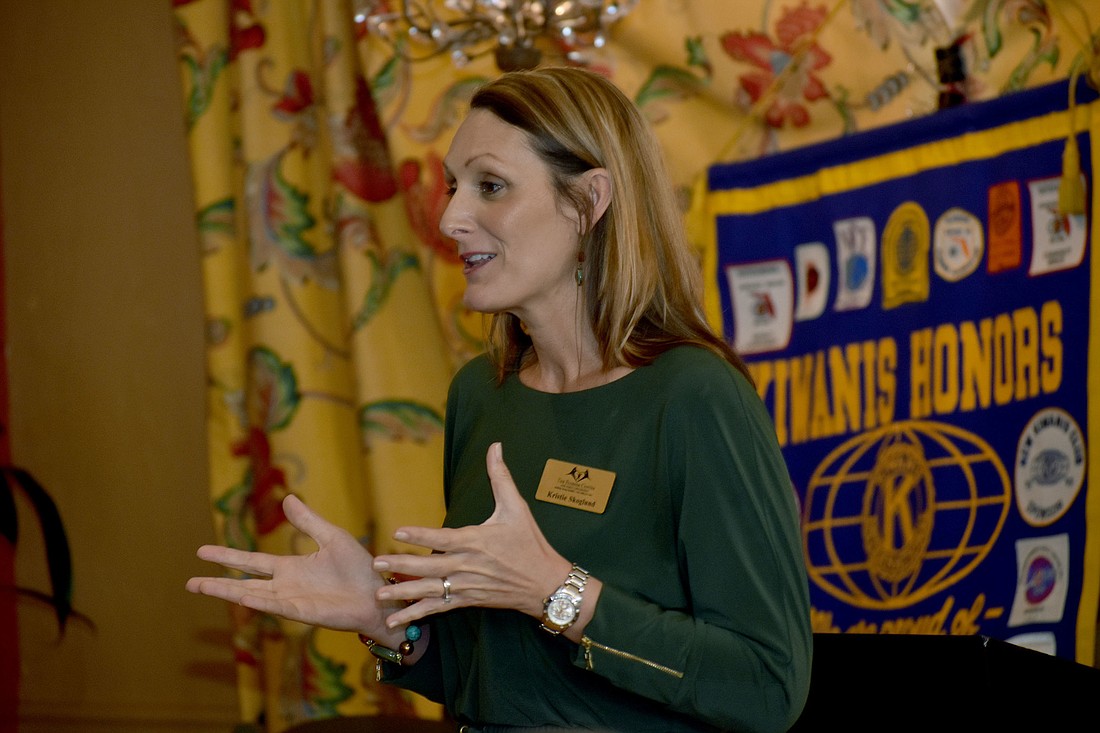- November 16, 2024
-
-
Loading

Loading

In 2017, 247 opioid overdoses were investigated in Sarasota County.
In 2016, Manatee County had the highest rate of opioid-related deaths in the state, and Sarasota County ranked 16th of Florida’s 67 counties.
Because of these numbers, The Florida Center for Early Childhood is working to combat the opioid crisis with the Early Childhood Court program in the 12th Circuit, which comprises Sarasota and Manatee counties.
Dr. Kristie Skoglund visited with the Longboat Key Kiwanis Club during its monthly luncheon meeting May 17 to explain this program and its purpose.
“Our job is to facilitate a connection with the family and help them understand how they can be successful,” Skoglund said.
The ECC combines monthly court reviews, child-parent psychotherapy, frequent parent-child contact and family team meetings, the Florida Courts website said.
Community coordinators of the Florida Center, which follows this national model, are notified daily of shelter hearings and attend all of them. As families begin the process, parents are given 12 months to complete a work-case plan to be able to reunite with their children. Mental health clinicians meet with the families weekly and case managers meet with them every three weeks.
Skoglund said there is a lot of “hand holding” in the beginning because it is important to understand the parents’ experiences and what their parents were like.
“We parent the way we were parented until we take the steps to do it differently,” Skoglund said.
Later adding, that these parents want their children to grow up with them.
Because the attachment to a caregiver is so important to babies, especially those under 6 months old, the program works to expedite permanency for the family. Attachment to a caregiver is critical to young infants for cognitive development.
“A 6-month-old brain is different than 5-year-old brain is different than a 10-year-old brain,” she said.
If a 10-year-old is removed from his or her parents, that child has the cognitive skills to process and make sense of their circumstances. An infant doesn’t have that ability.
Children that are removed from their home and have no real sense of permanency can have developmental delays and challenges in managing their emotions and behavior.
“We want to move them once, then back with mom and dad, but that doesn’t always work out,” Skoglund said.
Despite that setback, Skoglund said the Florida Center has to keep moving forward.
While the state of Florida wants children removed from their parents to stay with relatives, that isn’t always possible, Skoglund said. If long-term relative care is not an option, that’s when children are put in foster care.
The Florida Center is in the third quarter of their first year with this program. Already, four families in Sarasota County and three in Manatee County were reunified. Skoglund said a couple families will not be reunified.
Skoglund encourage club members to learn about what’s happening in their community and educated their neighbors.
“It’s hijacking families,” she said of the opioid crisis.